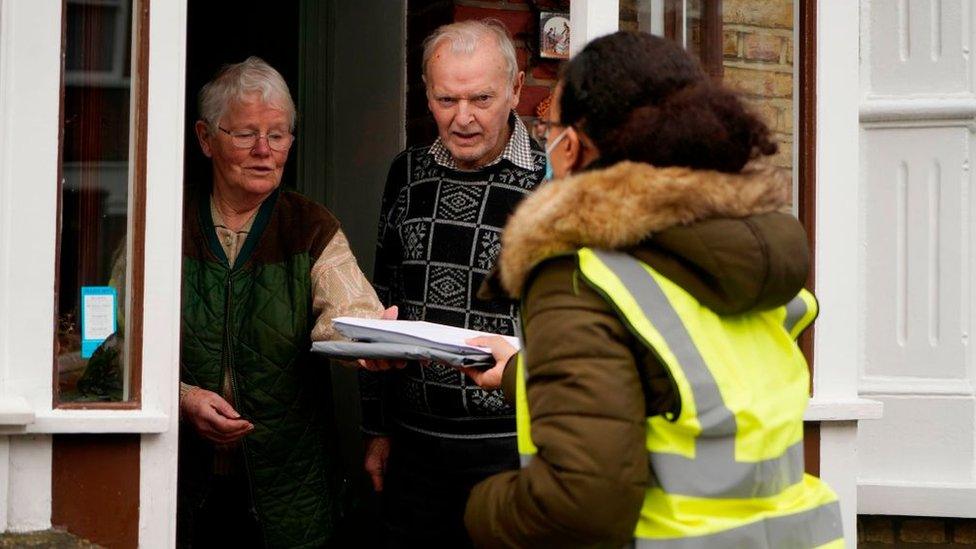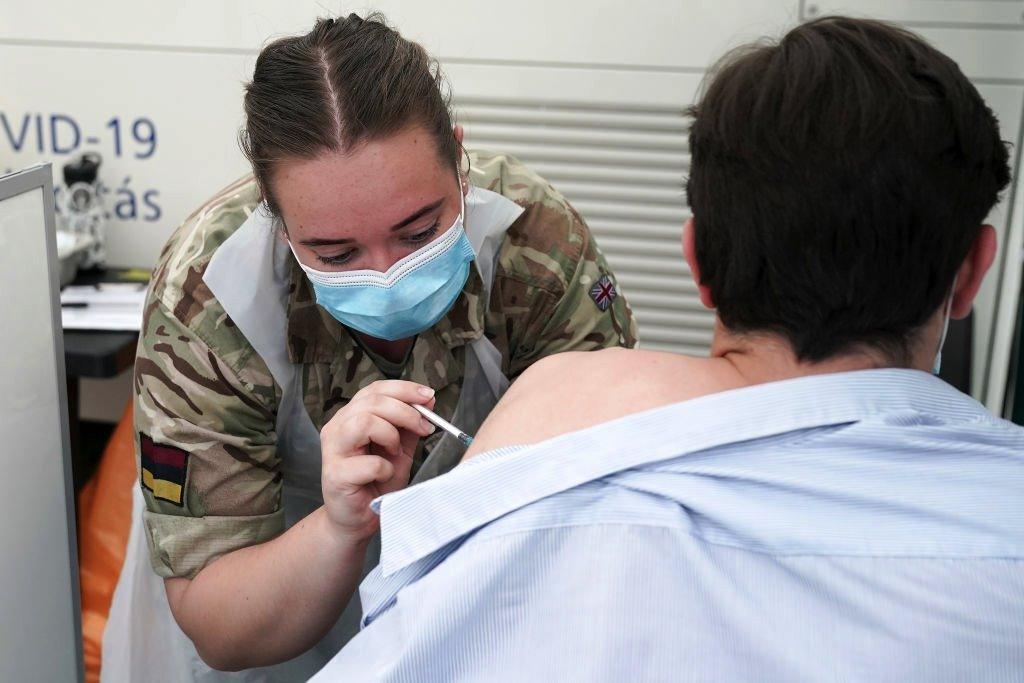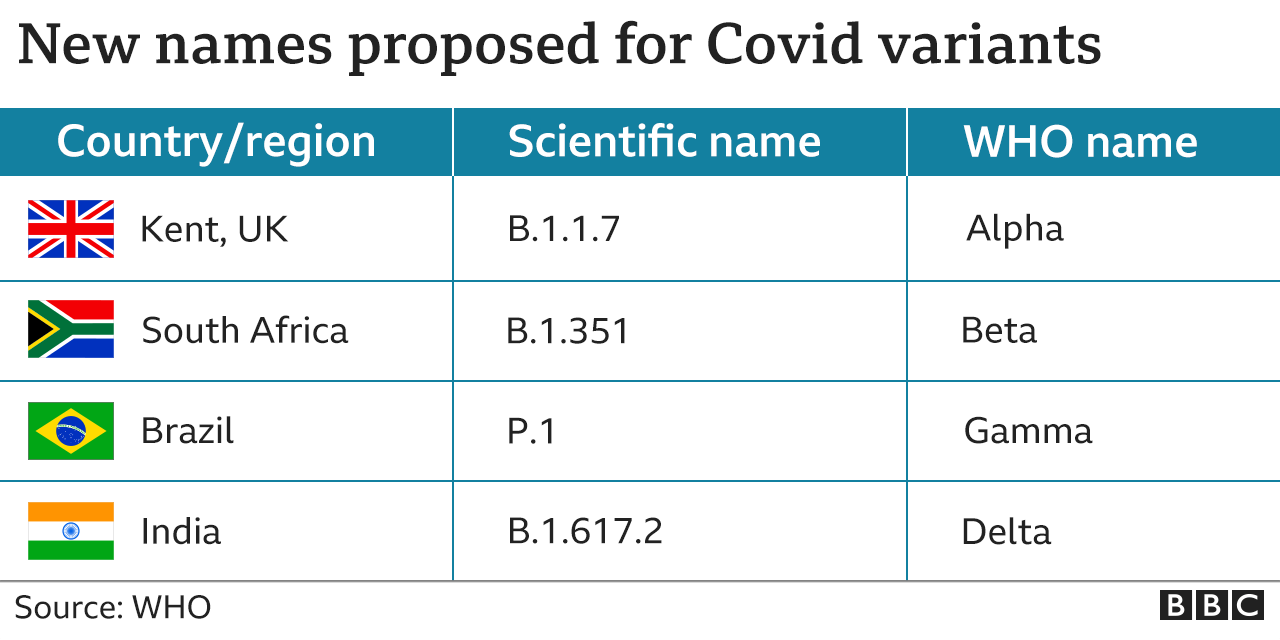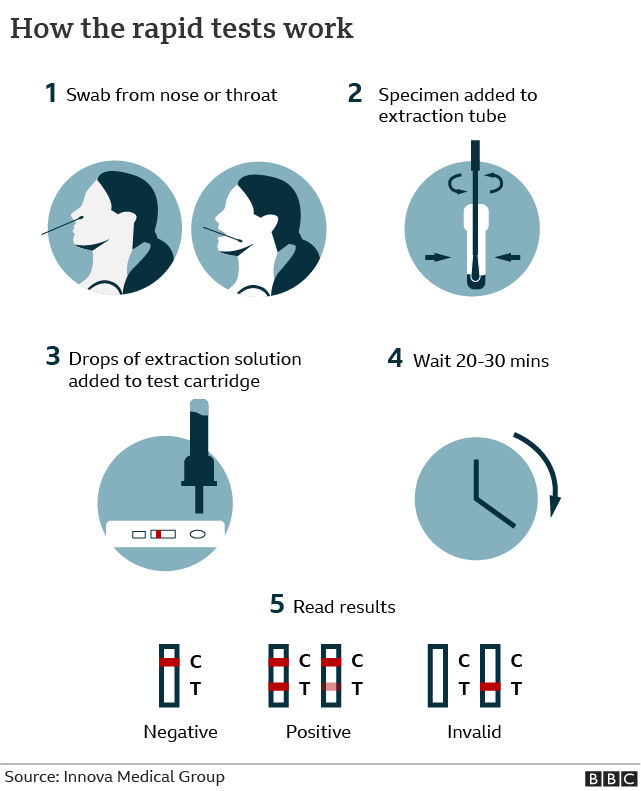Covid: Which areas are being surge tested for variants?
- Published

Extra Covid tests are taking place across England and Scotland in areas where new variants have been found.
This is known as surge testing - its purpose is to stop the spread of new forms of Covid at the very earliest stage.
How does surge testing work?
Increased testing and enhanced contact tracing is carried out in very specific locations, external - local authority areas, postcodes or even individual streets.
Some of this is carried out by health officials going door-to-door. It includes testing people who do not have Covid symptoms.
The testing also helps scientists better understand the new variants.
Where is it taking place?
Surge testing is currently taking place in areas of England where the new Delta variant - first identified in India - is spreading fastest.
East
North West
Greater Manchester Combined Authority, external (Bolton, external, Bury, external, Manchester, external, Oldham, external, Rochdale, external, Salford, external, Stockport, external, Tameside, external, Trafford, external, Wigan, external)
Lancashire County Council, external (Burnley, external, Chorley, external, Fylde, external, Hyndburn, external, Lancaster, external, Pendle, external, Preston, external, Ribble Valley, external, Rossendale, external, South Ribble, external, West Lancashire, external, Wyre, external)
Liverpool City Region Combined Authority, external (Halton, external, Knowsley, external, St Helens, external, Sefton, external, Wirral, external, Liverpool City, external)
West Midlands
South East
Surge testing is also currently being carried out in specific and targeted locations within the following local authority areas:
London
South East
North West
Yorkshire and the Humber
City of Bradford Metropolitan District Council, external (targeted areas, external)
Leeds City Council, external (targeted areas across Headingley and Hyde Park and Little London and Woodhouse wards, external)
Wakefield Council, external (targeted areas across Wakefield North, Wakefield South, Wakefield East, Pontefract North and Pontefract South, external)
Targeted community testing is also taking place in various health board areas across Scotland, external.

Army medics are helping with vaccinations in some areas where the Delta variant is spreading
What are the new variants?
Scientists have identified a number of "variants of concern" - these are newly spotted versions of Covid, which could be more contagious.
Also, because they're newer, less is known about how they respond to current vaccines.
The Delta variant - first identified in India - is the latest to cause concern. Others include those first identified in Brazil, South Africa and the UK (Kent).
The variants were initially named after the place where they were first seen, but the World Health Organization (WHO) has announced a new naming system which uses Greek letters instead.

What sort of tests are used in surge testing?
The PCR (polymerase chain reaction) test
People tested under the new variant surge programmes are being offered a PCR test.
This involves swabbing your nose or throat, dropping the swab in a vial of liquid and sending it to a lab for analysis.
It is regarded as the most reliable test, but normally takes a day or longer to get a result.
The lateral flow test
This also involves a swab from the nose or throat, which is dropped into liquid. The solution is then added to a test strip which shows a result in 20-30 minutes.

I'm not in a surge testing area - can I still be tested?
Wherever you are in the UK, if you have symptoms you should book a free test online, external. You will be sent to a testing site or have a testing kit sent to your home.
If you have problems booking, call 119 in England, Wales and Northern Ireland or 0300 303 2713 in Scotland.
Anyone in England can now get free lateral flow tests each week - even if they do not have symptoms. These can be ordered online, external, by calling 119, or can be collected from test centres and pharmacies.
Anyone in Scotland can also order free lateral flow tests online, external, or collect them from test centres.
What happens if I test positive?
Anyone who gets a positive result test must immediately self-isolate for at least 10 days. NHS Test and Trace will tell their contacts to isolate if necessary.
Self-isolating means not leaving home for exercise or even to buy food, medicines or other essentials.
People in England who fail to self-isolate after a positive test can be fined up to £10,000., external
Anyone on a low income who has been told to self-isolate can claim a £500 payment, external.

